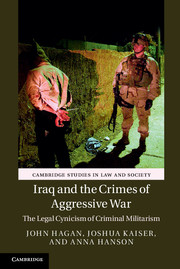5 - The Separate Peace of the Shia
Published online by Cambridge University Press: 05 July 2015
Summary
SECTARIAN SEPARATION
After enduring years of increasing violence and domestic insurgency following the 2003 U.S. invasion and continuing into 2007, Iraq entered a period of relative peace and security. How this happened is not clear. Many military leaders, media pundits, and elected politicians have argued that a 2007 surge in U.S. forces and/or a Sunni Awakening movement led to a tentative period of peace in Iraq. Others have suggested that a partition of Iraq's sectarian groups alone could have delivered this result. Although there has been no official partition of the Sunni, Shia, and Kurdish groups in Iraq, we show and explain in this chapter how Iraq's sectarian groups moved into an unstable “separate peace” that more recently has been followed by renewed violence.
We take the surge and partition arguments into account in this chapter. However, unlike David Petraeus (2013), who before the advances of the Islamic State of Iraq and Syria (ISIS) claimed that the surge is “how we won in Iraq,” we argue that unnecessary attacks on civilians reported by Arab Sunni civilians during the surge were actually a source of heightened perceptions of injustice and illegitimacy that are central to a theory of legal cynicism. Our further focus in this chapter is on using an endogenous conflict approach to supplement the theory of legal cynicism in explaining how an interim period of relative peace emerged and advantaged the Shia.
While journalists and soldiers continue to write a great deal about Iraq (e.g., Gordon and Trainor 2012), these accounts are highly anecdotal and view the Iraq conflict largely through an American lens that is framed by this nation's political debates about the Middle East. These debates reached a peak in 2006 over the decision to surge additional American troops or to partition Iraq's conflicting sectarian groups. There is relatively little social scientific work that locates these debates in relation to broader theoretical frameworks or that is based on nationally representative data collection that can illuminate how Iraqis have viewed the conflict around them, much less competing claims about this conflict.
- Type
- Chapter
- Information
- Iraq and the Crimes of Aggressive WarThe Legal Cynicism of Criminal Militarism, pp. 130 - 160Publisher: Cambridge University PressPrint publication year: 2015

